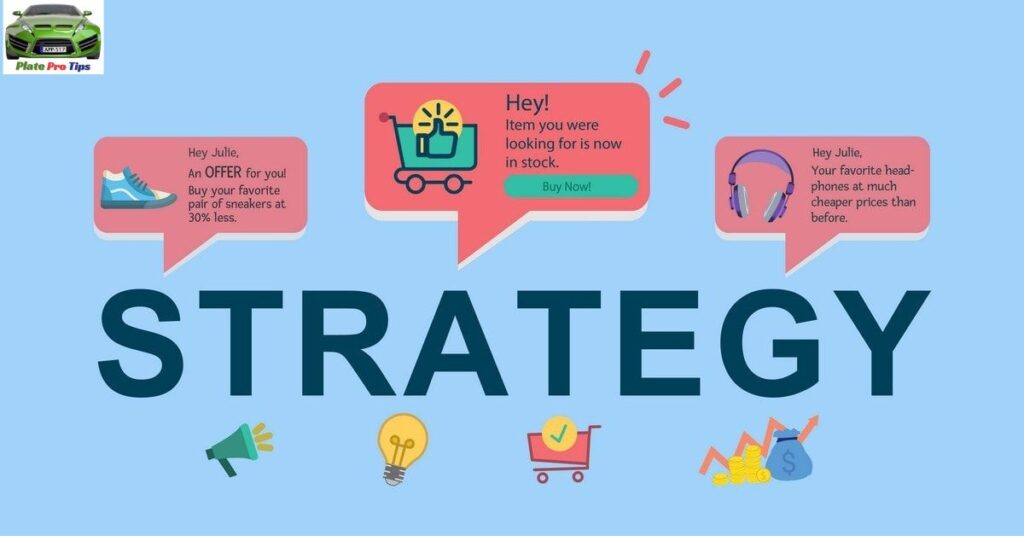Modern marketing is the widespread use of advanced techniques to promote products and services. It combines data analysis, personalization, and digital technologies to create targeted advertisements that reach consumers across multiple platforms and devices.
Ever feel like ads are reading your mind? You’re not alone. Welcome to the world of modern marketing. It’s clever, it’s constant, and it might just know you better than you know yourself. But is this digital pursuit of our attention a helpful friend or an unwelcome stalker?
Modern marketing is everywhere. It’s smart and personal. Digital ads follow us online. They use our data to know what we like. This can feel invasive. But it also shows us things we might want. The challenge is finding a balance between helpful ads and privacy
The Development Of Pushing Strategy
Marketing has come a long way. It started with simple ads. These ads were in newspapers. They were on radio. Then came TV commercials. But that was just the beginning. The internet changed everything. Digital marketing emerged. It was a game-changer.

Brands found new ways to reach people. They used emails. They used websites. Social media platforms became popular. Brands jumped on board. They created pages. They made posts. They interacted with customers directly.
Data became important. Companies collected information. They analyzed it. They used it to make better ads. Personalization became key. Ads were no longer generic. They were tailored to individuals.
Search engine optimization (SEO) became crucial. Brands wanted to be found online. They optimized their content. They used keywords. They built links. All to appear at the top of search results.
Mobile phones changed the game again. Apps became marketing tools. Push notifications kept brands in people’s pockets. Location-based marketing emerged. Brands could reach you based on where you were.
Marketing strategies became more complex. They integrated multiple channels. Omnichannel marketing became the norm. Brands wanted to be everywhere their customers were. The push for attention never stopped.
The Effect Of Progression On Current Publicizing
Technology has revolutionized advertising. Artificial Intelligence (AI) is now commonplace. It analyzes vast amounts of data. It predicts consumer behavior. It helps create personalized ads.
Machine learning algorithms improve over time. They learn from each interaction. They make ads more effective. They target the right people at the right time.
Programmatic advertising has automated buying and selling of ad space. It happens in real-time. It’s efficient. It’s precise. It allows for hyper-targeted campaigns.
Virtual Reality (VR) and Augmented Reality (AR) have entered the scene. They create immersive experiences. Brands can showcase products in new ways. Customers can try before they buy, virtually.
Voice search has changed SEO strategies. Brands optimize for voice queries. They aim to be the one answer Google Assistant or Alexa provides.
Influencer marketing has exploded. Social media stars have become powerful. Brands partner with them. They reach millions of followers. It feels more authentic than traditional ads.
Native advertising blurs the lines. Ads look like content. They blend in. They’re less disruptive. But they’re still selling.
Chatbots provide instant customer service. They’re always on. They learn from each interaction. They represent brands 24/7.
Big data allows for unprecedented insights. Brands know more about customers than ever before. They use this information to create highly targeted campaigns.
The Internet of Things (IoT) provides new data sources. Smart devices collect information. Brands use this to understand consumer behavior better.
Read This Blog: Inspecting The Oneworldcolumn.org Blog And Its Effect
The Ethical Repercussions Of Observable Showing Systems
With great power comes great responsibility. Modern marketing raises ethical questions. Privacy concerns are at the forefront. How much data collection is too much?
Targeted advertising can feel invasive. People wonder how ads know so much about them. It can create discomfort. It can erode trust.
Data breaches are a constant threat. Companies hold vast amounts of personal information. Hackers target this data. Consumers are at risk.
Children’s privacy is a particular concern. Young users are vulnerable. They may not understand the implications of sharing information online.
Manipulation is a real risk. Sophisticated algorithms can exploit human psychology. They can create addictive behaviors. They can influence decisions in subtle ways.
Fake news and misinformation spread easily. Social media algorithms can amplify false information. Brands may unintentionally support harmful content through programmatic ads.
Ad fatigue is a growing problem. People are bombarded with marketing messages. It can lead to burnout. It can make people tune out entirely.
Dark patterns in UX design can trick users. They might make choices they didn’t intend to. This erodes trust in digital interactions.
Transparency is often lacking. People don’t always know when they’re being marketed to. Native ads and influencer posts can be misleading.
The digital divide raises fairness issues. Not everyone has equal access to technology. This can lead to unequal exposure to information and opportunities.
Algorithmic bias is a serious concern. AI systems can perpetuate and amplify existing biases. This can lead to discriminatory practices in marketing.
Read This Blog: Lasée: Your Manual For Enduring Style And Significance
How Clients Can Defend Themselves From Strong Propelling Procedures?
Knowledge is power. Education is key to defending against aggressive marketing. People need to understand how modern marketing works.
Ad blockers are a popular defense. They prevent many ads from loading. They can improve browsing experience. But they also impact content creators.
Privacy settings should be regularly reviewed. Social media platforms offer controls. Users should understand and use them.
VPNs (Virtual Private Networks) can help. They mask online activity. They make it harder for companies to track users across the web.
Reading privacy policies is important. It’s tedious, but necessary. Users should know what they’re agreeing to.
Opting out of data collection when possible is wise. Many services offer this option. It may limit personalization, but it protects privacy.
Using private browsing modes can help. It limits tracking to some extent. It’s not foolproof, but it’s a start.
Being cautious with personal information is crucial. Think before sharing. Once information is out there, it’s hard to take back.
Supporting privacy-focused services sends a message. It shows there’s demand for ethical practices. It encourages more companies to prioritize privacy.
Teaching digital literacy to others is valuable. Friends and family may need help. Sharing knowledge helps everyone.
Advocating for stronger regulations can make a difference. Contacting representatives matters. Supporting privacy-focused legislation is important.
Frequently Asked Questions
What is personalized advertising?
Personalized advertising uses data about you to show targeted ads. It aims to be more relevant to your interests and needs.
How can I stop seeing so many ads online?
Use ad blockers, adjust privacy settings, and opt out of personalized ads where possible. Consider using privacy-focused browsers and search engines.
Are my smart home devices collecting data for marketing?
Many smart devices do collect data. Read the privacy policies. Look for options to limit data sharing for marketing purposes.
How do companies get my personal information?
Companies collect data through website visits, app usage, purchases, and public records. They may also buy data from third-party sources.
Is it safe to use social media if I’m concerned about privacy?
Social media can be used safely with caution. Adjust privacy settings, be mindful of what you share, and regularly review connected apps and permissions.
Conclusion
Modern marketing is a double-edged sword. It offers personalization and convenience. But it comes with privacy concerns. The balance between effective marketing and ethical practices is delicate.
Consumers need to be vigilant. They should understand the tactics used. They should take steps to protect their privacy. Education is key.
Companies must be responsible. They should prioritize transparency. They should respect user privacy. Ethical marketing practices build trust.
Regulators have a role to play. They need to keep up with technological advancements. They should create and enforce appropriate guidelines.
The future of marketing will continue to evolve. New technologies will emerge. New challenges will arise. Staying informed and adaptable is crucial. Ultimately, the power lies with consumers. Their choices shape the market. Their demands drive change. By being aware and making informed decisions, they can influence the direction of modern marketing.

I’m Shoaib, a passionate blogger with 5 years of experience. I love writing about tech. My goal is to share useful information and insights with you. Explore my website to discover exciting content on various topics!




